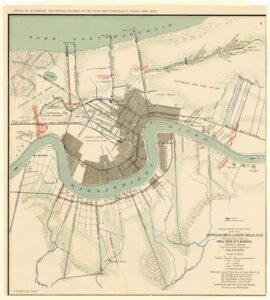
Haunted Former Safe Havens of Reconstruction
I had had enough of ghost stories as the author of a book about the Colfax Massacre. I had discovered the awkwardness of being a white woman who became the expert on the suffering of Black people. And while no one had told me it was not right, I came ...
Read More
Read More
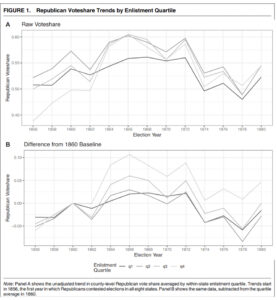
“Let our ballots secure what our bullets have won”: Union Veterans and the Making of Radical Reconstruction?
Editor's Note: This post is part of the Detailed: A Semi-Occasional series within Muster. Read the introductory post here. The passage and enforcement of the Reconstruction amendments is one of the most remarkable expansions of political rights in world history. Political scientists studying the expansion and contraction of political rights ...
Read More
Read More
A World “Transfixed”: The International Resonance of American Political Crises during Reconstruction and at Present
The conditions of the global pandemic have made us keenly aware, once again, of the interconnectedness of the world we share. Recent protest movements against systemic racism have radiated from the United States to distant places. Reporting the reactions of people around the world to American events, The New York ...
Read More
Read More

Welcoming P. Gabrielle Foreman to the Muster Team
We are pleased to announce the addition of a new correspondent to our Muster team, P. Gabrielle Foreman. Gabrielle recently moved to Penn State from the University of Delaware where she was the founding faculty director of the award-winning Colored Conventions Project. At Penn State, she'll launch and direct the Center ...
Read More
Read More
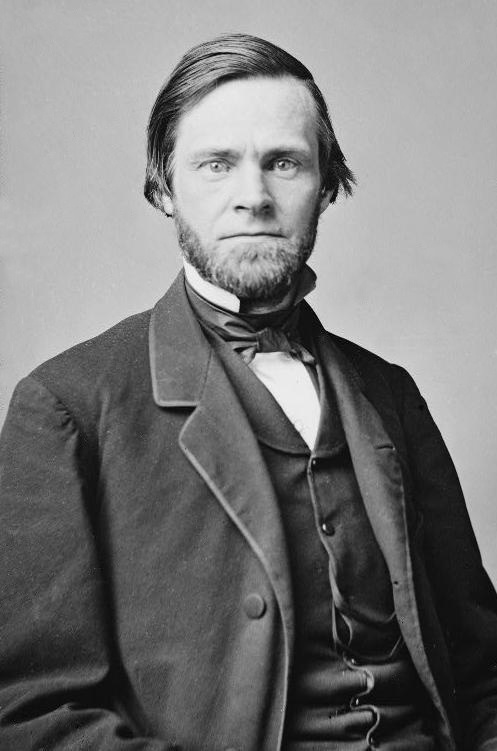
John Sherman’s Struggle to Preserve Democracy: How 1860 Connects to 2020
This is not the first time in American history when democratic governance appeared to be under assault. In the years before the Civil War, just as today, minority rule was the norm. White Southerners dominated the Democratic Party, and the Democratic Party dominated the federal government. In this way, what ...
Read More
Read More
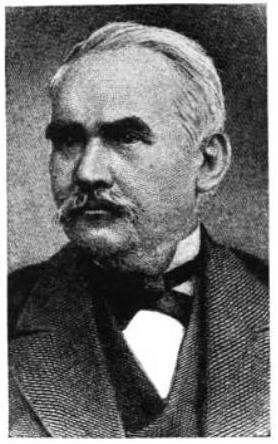
How to Build a Winning Coalition: What Today’s Democrats Can Learn from Pennsylvania’s Republicans in 1860
American politics during the late antebellum era was divisive and deeply polarized, just like the present. A few key battleground states, most prominently Pennsylvania, decided the outcome of national elections. To win the Keystone State in 1860, Republican Party managers employed keen coalition-building skills. They adapted readily to changing circumstances ...
Read More
Read More

Author Interview: Jack Furniss
Today we are sitting down with Jack Furniss, author of “Devolved Democracy: Federalism and the Party Politics of the Late Antebellum North,” which appeared in our December 2019 special issue. After graduating from the University of Virginia in 2018, he served as a Visiting Postdoctoral Research Fellowship at the Rothermere ...
Read More
Read More
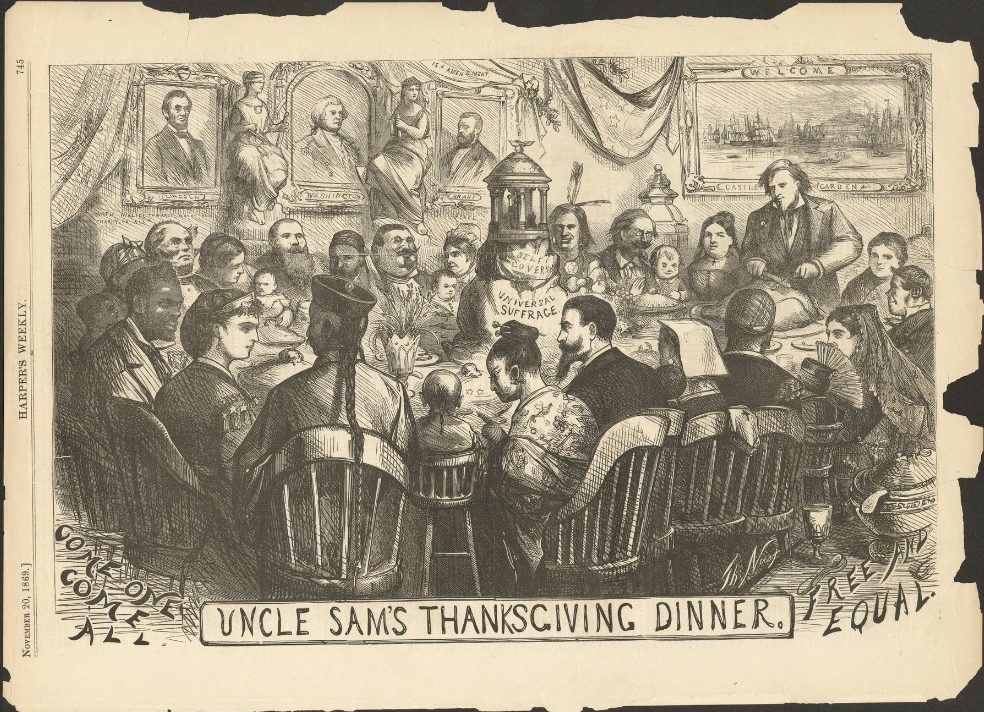
Teaching the Reconstruction Era Through Political Cartoons
During this past fall semester I received an email from a curriculum coordinator at a local school district. She stated that a high school history teacher was running short on time, but wanted to spend one day with his students discussing the Reconstruction era before the end of the semester ...
Read More
Read More

Before Opinion Polling: Tracking Public Sentiment in Civil War-Era Politics
For better or for worse, public opinion polls are deeply embedded in American politics. Proponents argue that polls keep elected officials connected to their constituents, make the government more responsive to popular demands, and dispel “myths and stereotypes that might otherwise mislead public discourse.”[1] Critics argue that strict obedience to ...
Read More
Read More
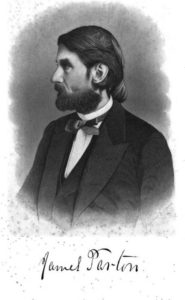
A Historian for Troubled Times: James Parton, Andrew Jackson, and the Secession Winter
The cry echoed throughout the crisis which followed Abraham Lincoln’s election: “Oh, for an hour of Jackson!” It crossed party and even sectional lines, linking dyed-in-the-wool Democrats to rock-ribbed Republicans, and indignant northerners to anxious southern dissenters. As they scorned lame-duck James Buchanan and awaited his untested successor, many Unionists ...
Read More
Read More
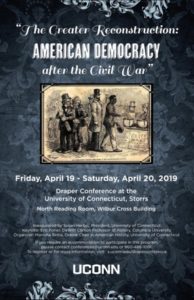
2019 Draper Conference Review: “The Greater Reconstruction: American Democracy after the Civil War,” Part II
Day two of the 2019 Draper Conference brought four more panels, including a plenary session that concluded the proceedings. For my review of day one of the conference, see my previous post on Muster. A panel on the topic of “Racial Terror and Violence” started off the morning block and ...
Read More
Read More
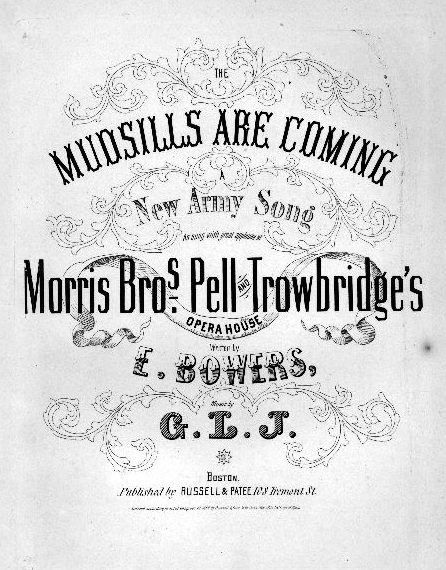
Mudsills vs. Chivalry
Writing home from Alabama in November 1863, an Ohio cavalryman celebrated the overthrow of the Southern aristocracy: “The mud sills of the North roam at will over the plantations, burn rails, forage on the country, and the negroes flock into our camps, leaving their lordly masters helpless and dependent,” he ...
Read More
Read More
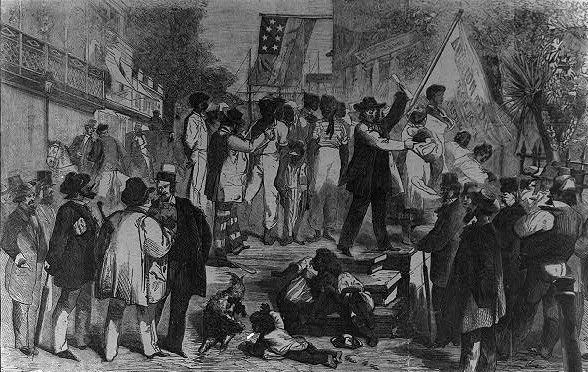
“The Most Potent Money Power”: Slave Traders, Dark Money, and Elections
With the 2018 midterm elections approaching, the role of money in politics once again looms large in American political discourse. For many, shadowy super PACs, mega-donors, and dark money stand in stark contrast to the sanctity of the individual voter. Political actors recognize and deploy this, with politicians going to ...
Read More
Read More
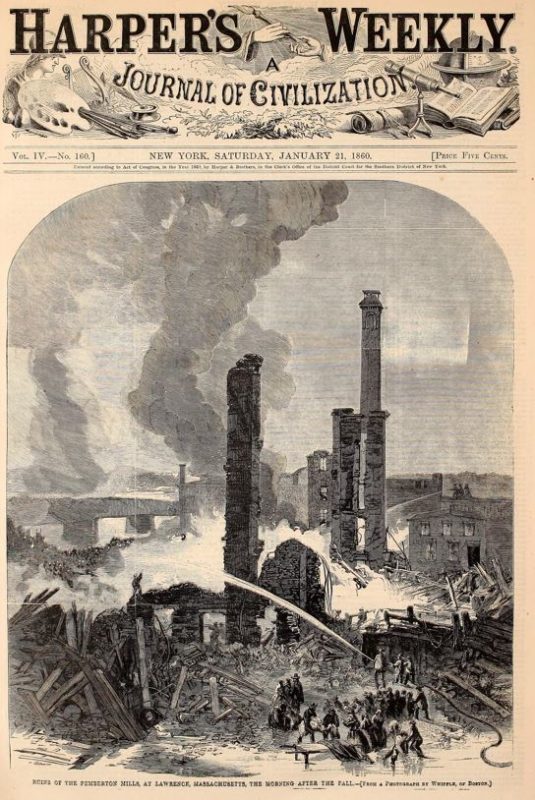
The Other Lawrence Massacre: Sectional Politics and the 1860 Pemberton Mill Disaster
Political polarization often magnifies the public significance of a tragedy. As Americans prepared for a bitterly contested presidential election in early 1860, a gruesome industrial accident in Lawrence, Massachusetts, reignited conflict between champions and critics of wage labor. Unlike the violent episodes of 1856 and 1863 in Lawrence, Kansas, the ...
Read More
Read More
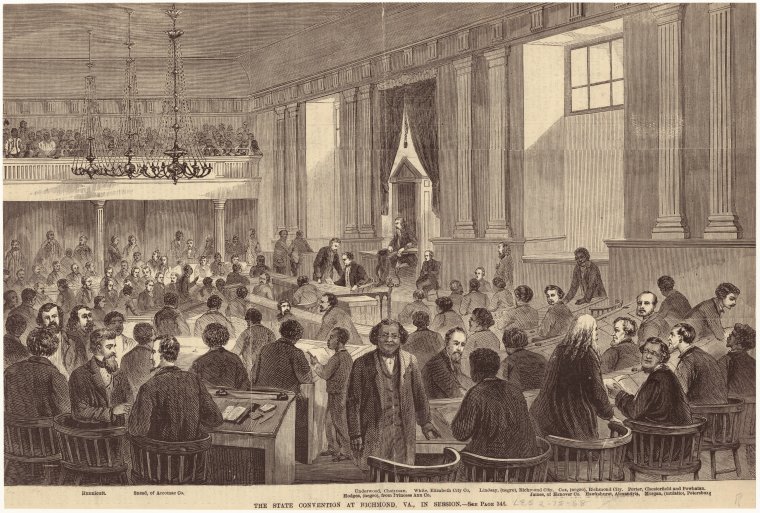
The Roots of Reconstruction
Today we share the first contribution to our scholarly roundtable on the Fourteenth Amendment. The guest editor's introduction and conclusion can be found here and here. Subsequent posts can be found here, here, and here. In the decades before the passage of the Fourteenth Amendment, African American activists helped ...
Read More
Read More

